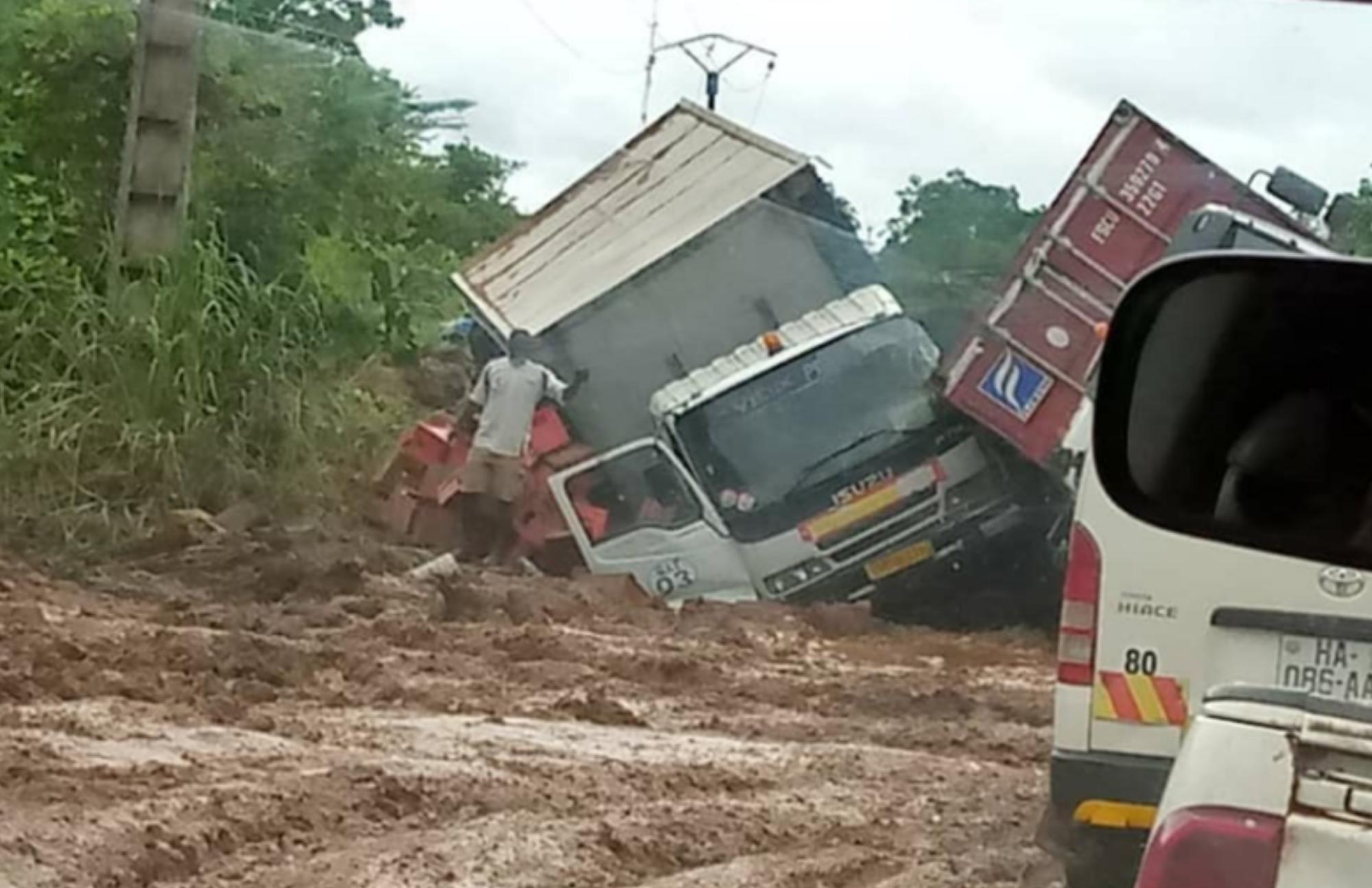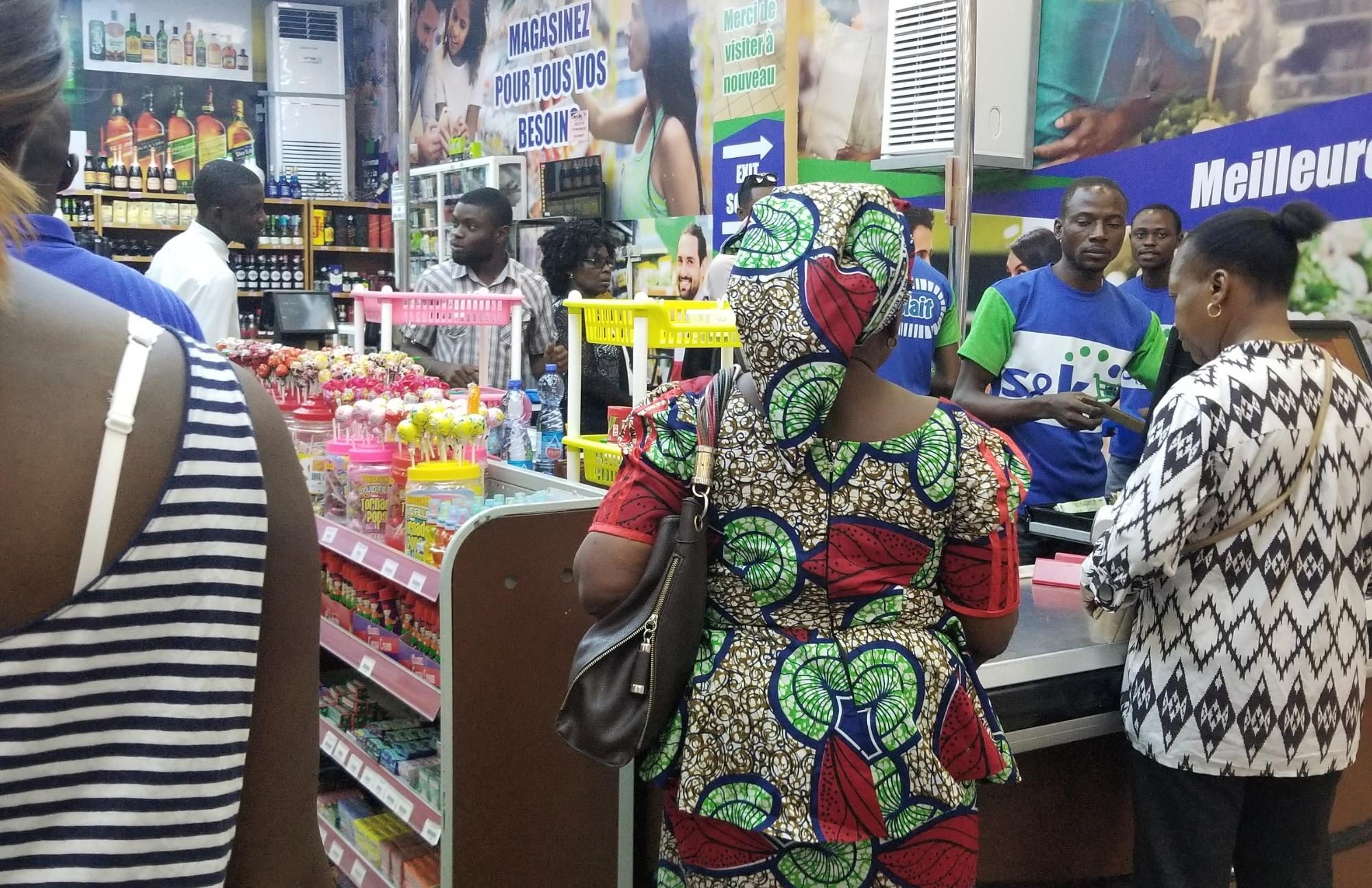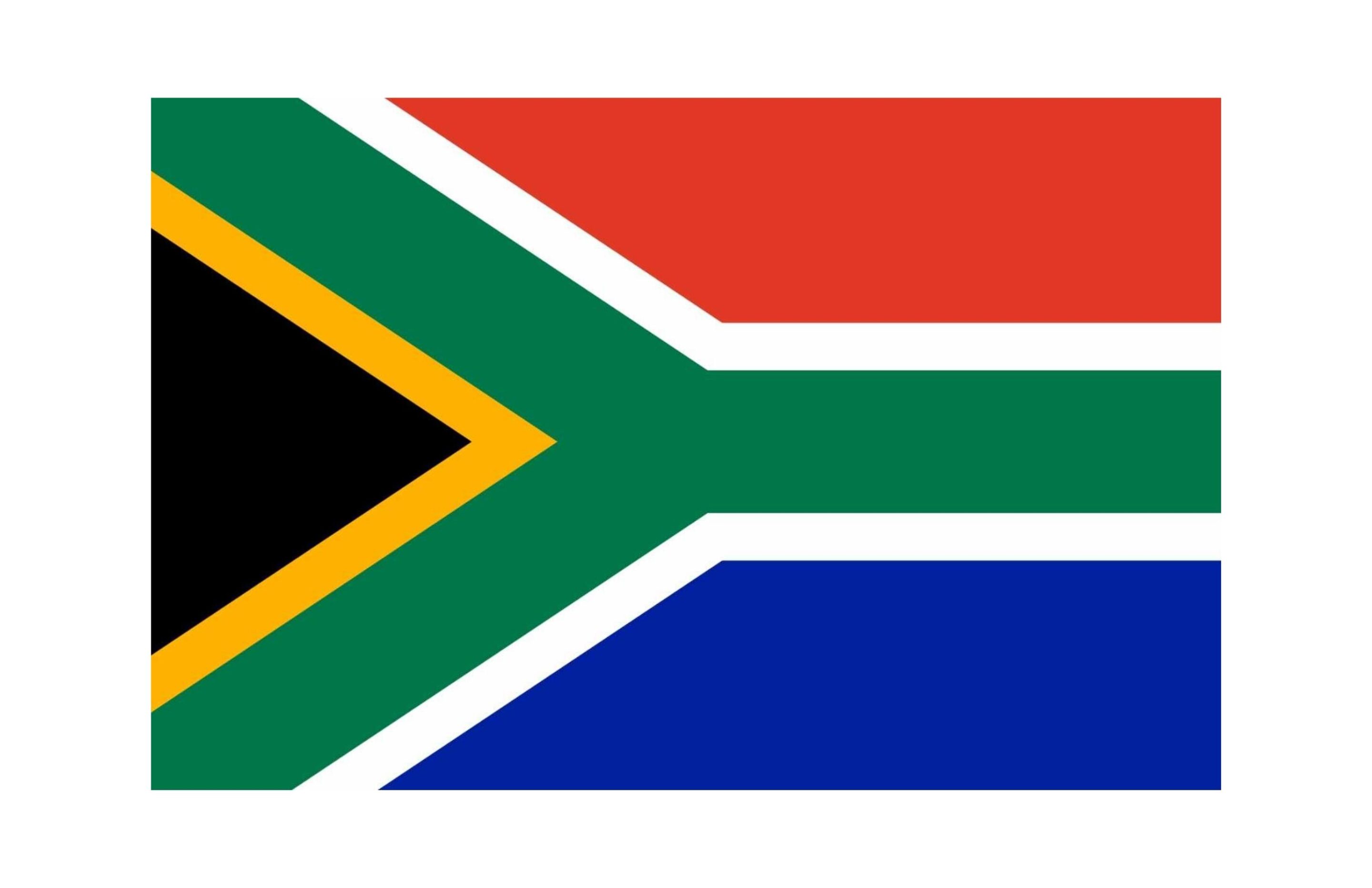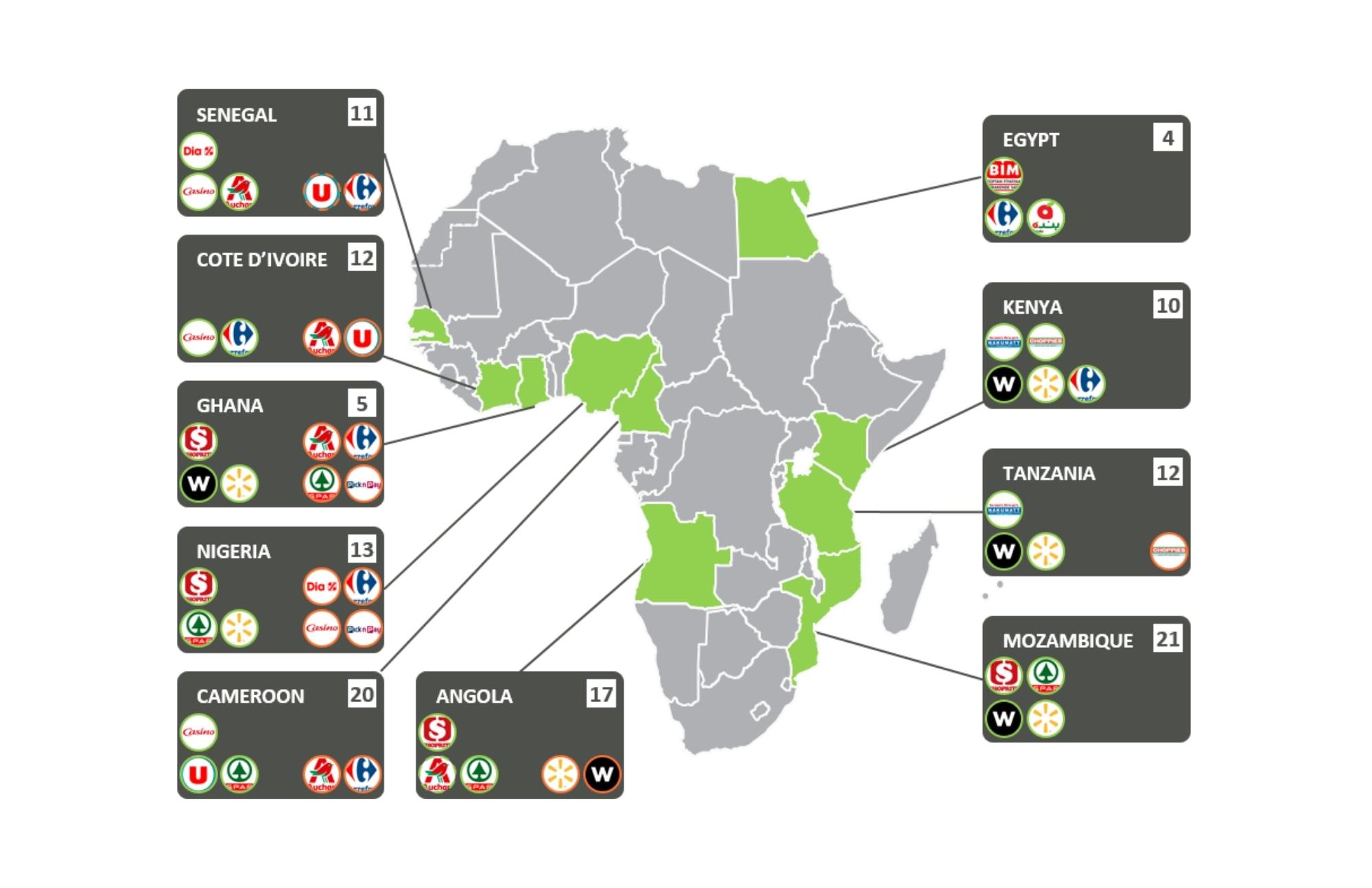Across African markets, the share of grocery retail sales accounted for by modern trade is still incredibly low, with the notable exception of South Africa, Namibia and SACU markets where South African supermarket retailers Shoprite, Pick n Pay, Spar, Woolworths and Massmart have expanded. Even in developing modern trade markets such as Kenya, Morocco and Egypt, the penetration of the modern trade remains below 20% of total grocery retail sales.
Trendtype’s Market Navigator tool draws in data from more than 19,000 modern trade outlets covering 95% of the total supermarket sector in 50 countries in Africa. Each outlet is geolocated, which means we know what city it is in (we also know what the income levels are where each supermarket is sited, and will look at that topic in a separate report).
Most data refers to modern trade at a national level. This is fine in developed markets outside Africa, where there is little distinction between supermarket provision in major cities and in smaller towns and rural areas. In markets in Africa, the penetration of supermarkets across a country is at least as useful a metric as overall penetration as a guide to maturity of the sector.
With that in mind, this analysis looks at the share of all modern trade sales in each country accounted for by the major commercial centre. Trendtype has also looked at the share of modern trade sales accounted for by the top 5 cities, another metric of concentration of the modern trade. By means of comparison, the share of modern trade sales accounted for by the largest commercial centre in South Africa, Johannesburg, is 19.0%. When we look at the total share of sales accounted for by the five most important cities, it is just under half total sales, 47.7%.

Note that although there is a strong correlation between modern trade penetration and the importance of the commercial centre, it isn’t absolute. For example, Kenya has a much larger and more sophisticated modern trade sector than most countries outside Southern Africa, but Nairobi still accounts for 51.9% of total modern trade sales in the country. Whereas in Nigeria, Lagos is just 41.5%. For companies targeting consumers exclusively through modern trade, the share of the largest city is a vital piece of information for marketing. Across Africa, 28.5% of modern trade sales take place in the country’s commercial capital. When you exclude South African data, that rises to 43.4%.
What happens if we look at the top 5 cities?
This matters in countries such as Cameroon, which has two major trade centres (Douala and Yaoundé), for example. The results are often astounding. The data tells us that only five countries have truly national supermarket store networks in terms of how consumers shop: South Africa, Namibia, Botswana, Morocco and Tunisia.

Mapping the expansion of modern trade is important because as supermarket chains get larger they cease to service only higher income consumers. In markets like Egypt and Kenya, for example, the buying power of supermarket chains means they may also be the cheapest stores for staples like cooking oil, rice, sugar, flour or tomato paste. The emergence and growth of discounters such as Carrefour’s Supeco and Turkish Lidl-alike BIM and the hybrid wholesale-retail role played by the Auchan store network in Senegal show how supermarket networks will play a role in lowering the cost food in African markets.










